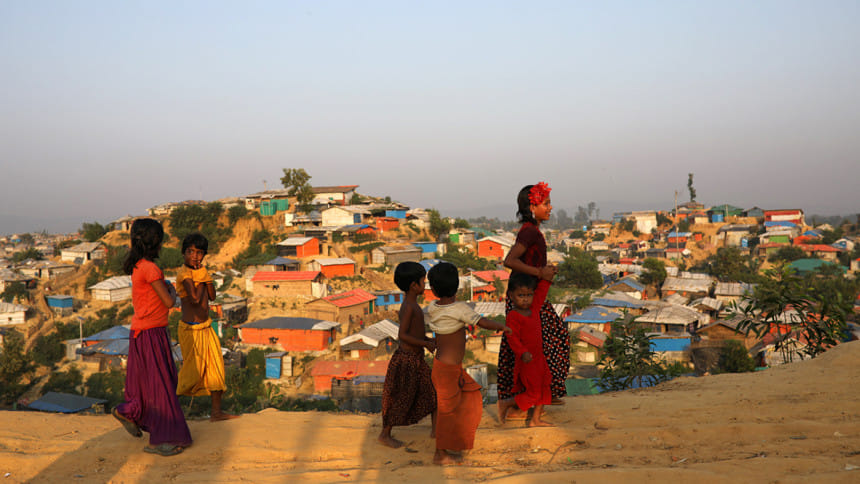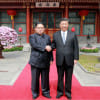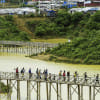China, Myanmar ‘stand together’ despite Rohingya backlash

China and Myanmar today inked dozens of mammoth infrastructure and trade deals after a meeting between President Xi Jinping and fallen rights icon Aung San Suu Kyi, as Beijing doubles down on its support for a government under fire for its treatment of Rohingya Muslims.
The Chinese leader's two-day state visit to Myanmar's purpose-built capital comes as Western investors cast a wide berth around the country due to the Rohingya crisis.
A 2017 military crackdown on the Muslim minority, which UN investigators have called genocide, forced some 740,000 people over the border into Bangladesh.
Beijing has stood strongly beside Myanmar and the Asian giant is now the country's largest investor even as distrust of its ambitions lingers among the public.
More than 30 agreements were signed Saturday on Xi's final day of his visit -- with Suu Kyi and Xi seated across from each other on long tables alongside related ministers.
Details on the amount of the package were scant but among the 33 deals was a concession and shareholders agreement on the $1.3 billion-dollar Kyaukhphyu deep-sea port and economic zone.
There was also a letter of intent for "new urban development" in Myanmar's biggest city Yangon and feasibility studies for rail links.
The aim is to carve out a so-called "China-Myanmar Economic Corridor" -- a path of infrastructure from China's landlocked south to Myanmar's western Rakhine state which would serve as Beijing's long-awaited gateway to the Indian Ocean.
The elaborate signing ceremony came between sit-down meetings with Suu Kyi and powerful army chief Min Aung Hlaing, who stands accused of masterminding the Rohingya crackdown.
'Stand Together'
After arriving Friday Xi called the visit a "historical moment" for relations between the two neighbours, according to state-run newspaper the Global New Light of Myanmar.
He also touched on the "unfairness and inequality in international relations" in what could be seen as a slight against the United States, which has sanctioned the army chief.
Myanmar leader Suu Kyi -- whose reputation lays in tatters in the West's eyes due to her defence of the army over the Rohingya crisis -- said the country will always be at China's side.
"It goes without saying that a neighbouring country has no other choice, but to stand together till the end of the world," she said during a celebration late Friday.
China remains an indispensable ally for its Southeast Asian neighbour, wielding a protective veto vote at the UN Security Council.
The stakes are heightening as the UN's top court prepares to rule next week on whether "emergency measures" should be taken against Myanmar as part of a genocide complaint in The Hague.
But widespread suspicion of Beijing's influence in the country persists among those who are sceptical the economic benefits will trickle down to the masses and of ties to rebel groups fighting the state in border areas.
"This is a big problem for our country... they believe that China has been taking advantage," said Thu Wai, leader of the Democratic Party, one of the 17 political parties at Friday's celebration.
That anger will be on full display in a planned protest this afternoon in Yangon, where demonstrators are to rally against any reinstatement of a controversial Chinese-backed mega-dam.
The $3.6 billion 6,000 megawatt Myitsone project was suspended in 2011 in the face of vociferous criticism across the country.
This is believed to have been a personal affront to Xi, who signed the deal with Myanmar's then-military junta as vice president in 2009.

 For all latest news, follow The Daily Star's Google News channel.
For all latest news, follow The Daily Star's Google News channel. 








Comments